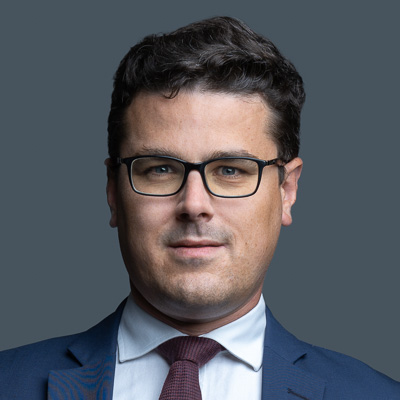Insights | 13 July 2023
Burkina Faso: Investment protection in times of political and military uprisings

Recent uprisings in Burkina Faso have created a climate of turmoil and instability, but there are mechanisms in place that foreign investors can turn to for protection in such uncertain times. This article is the third in a series on the impact of military uprisings in West Africa on foreign investment, with previous articles addressing the immediate consequences of coups in Mali and Guinea.
1. INTRODUCTION
In January 2022 – in the face of repeated jihadists attacks and the apparent inability of the authorities to act – President Roch Marc Christian Kaboré of Burkina Faso was ousted by a military coup led by Lieutenant Colonel Paul-Henri Sandaogo Damiba. The situation did not improve and, on 30 September 2022, another military coup placed Captain Ibrahim Traoré as “transition president” until July 2024 at the latest (the proposed date for new presidential elections).
- Ongoing security concerns have led to disruptions in infrastructure and natural resource projects, with several mines temporarily shutting down and significant drops in production in the gold mining sector, jeopardising the State’s main source of revenue.
- The national oil products company, Sonabhy, began defaulting on up to USD 610 million in payments to three Swiss trading companies, which supplied the country in oil products, prompting threats to cut supplies.
- The presidency announced the seizure of an estimated 25 million dollars’ worth of unrefined gold ore from mining companies (plans for payment of that material remain undisclosed).
- The situation worsened post-2022, with the junta targeting French interests in the country – taking TV channel France 24 off air and expelling certain French journalists.
- The mining sector was again shaken in March 2023, when the government sought to award a contract for the construction of a gold refinery, indicating that it would require gold producers to refine a minimum portion of their production in the country (mining companies should keep a close eye on this ongoing legislative work).
Foreign investors in Burkina Faso are not defenceless against these various threats – protection tools exist in investment contracts, international agreements and local investments/mining codes.
2. FOREIGN INVESTMENT PROTECTION MECHANISMS
2.1 Potential issues facing foreign investments
Jihadist attacks on Burkina Faso mining sites or related infrastructure (such as roads or rail) have generated significant disruptions, especially for mining and infrastructure projects.
Although the State recently banned artisanal mining (because it benefitted Jihadists) artisanal miners continue to trespass on licences validly granted to mining companies. Investors may even face the complete destruction of their investment due to sabotage by jihadists, acts of war, or collateral damage in military operations.
Miners in such situations must:
- stop the interference as quickly as possible so that exploration or exploitation can resume; and
- ensure that losses resulting from such interference are compensated fully and swiftly.
Investments may also fall prey to non-physical interference by the State or State entities. These may include unlawful tax audits, forced renegotiation of mining conventions following legislative changes, or revocation of mining permits. Such interference can also be perpetrated by private entities in the form of breaches of contract (e.g. joint venture contracts relating to a mining project).
Finally, even though the State has not taken such steps yet, investments may be faced with measures resulting in the direct or indirect expropriation of their investment. The following sections address the legal protections and remedies available.
2.2 External protections
Investors may have protected their investment by externalising all or part of the risk, with insurance policies protecting the investor against certain risks. For instance, most trading companies are insured against the purchaser’s default under oil products supply agreements.
Beneficiaries of such insurance policies should review them carefully before submitting a claim since insurers will have a right of subrogation to enforce claims against the State (or other defaulting entities), and this may jeopardise existing commercial relationships.
Some long-term project insurances are granted by multilateral platforms, such as the World Bank’s Multilateral Investment Guarantee Agency (MIGA). These types of guarantees are valuable, since those entities also provide financial support to most African States, which provides these multilateral institutions with leverage if they are involved early on in the process of discussing potential threats from the State.
2.3 Contractual protections
As in Guinea and Mali, Burkina Faso law is based on French law and applies OHADA law.
Contracts for large infrastructure or natural resource projects are generally first in line in periods of instability and can thus be freely negotiated. They are generally sophisticated instruments and may include the following:
- Stabilisation clauses (usually present in long-term contracts with a State party) aimed at protecting the investor against sudden legislative or regulatory changes. These can be general (covering all legal aspects 4 of the contract) or specific (focusing on tax and contributions for example).
- “Facilitation” clauses requiring the State party to issue, or not unreasonably withhold, the required authorisations, permits and agreements to carry out operations. In the absence of a State party to the contract, these can also take the form of an obligation for one of the parties to obtain all necessary permits and authorisations. Such clauses can also include an obligation for the State to provide adequate protection (whether private or public) for the projects to be carried out safely.
- Dispute resolution clauses providing for the resolution of contractual disputes via a combination of negotiation, mediation or arbitration. Given the strategic importance of large infrastructure or natural resources projects, a neutral dispute resolution forum should be preferred over local court jurisdiction.
2.4 International investment agreements
Foreign investments in Burkina Faso may also effectively be protected through international investment agreements (IIAs).
Burkina Faso is party to 14 bilateral international treaties (BITs) in force (a type of IIA signed between two States) under which both parties commit to protecting investments made by their counterpart’s investor on their territory. Burkina Faso’s IIAs have been signed with large capitalexporting countries such as Germany, Switzerland, Canada and the Republic of Korea.1 These IIAs all include a clause prohibiting unlawful expropriation and a clause providing for the settlement of disputes between the foreign investor and Burkina Faso via international arbitration (notably before arbitration tribunals operating under the auspices of the International Centre for the Settlement of Investment Disputes (ICSID)).
To claim protection under these IIAs, the foreign investor and foreign investment must meet certain requirements (e.g. the investor must be foreign and, if not, must establish foreign control).
As well as fair and equitable treatment (FET) protections and protection against expropriation, these IIAs often contain a full protection and security (FPS) clause (clause de protection pleine et entière), under which the State must protect investors and their investment against physical interference, or compensate them for loss suffered as a result of a failure to ensure such protection.
Importantly, foreign investors can also ask international arbitral tribunals for provisional measures, to guarantee the security of their operations on the ground and to maintain the status quo pending resolution of the dispute.
2 See concept on Jus Mund, in wiki note: https://jusmundi.com/en/document/publication/enfull-protection-and-security-fps.
2.5 Codes des investissements (2018)
Burkina Faso implemented an investment code in 2018, governing foreign investment in sectors not regulated by another industry-specific code (such as the Mining Code). Article 4 of the Code limits its scope of application to investments made by entities having a commercial or trading activity, but for investments that fall within its scope, it provides a significant level of protection.
- Article 8 protects foreign investors against unlawful expropriation and grants protection of acquired rights.
- Under article 12, foreign investors benefit from fair and equitable treatment, full protection and security, and a general protection against discrimination.
- Article 39 includes an open offer to arbitrate disputes with the State, under the ICSID Convention or before the OHADA Common Court of Justice and Arbitration (CCJA).
- Under article 40, the arbitral tribunal must issue an award in accordance with local and international rules applicable to the dispute.
2.6 Code minier (2015)
Investments in the mining sector are governed by the 2015 Mining Code. Article 1 sets out the activities falling within its scope of application, as well as the authorisation regime under Burkina Faso law (Article 8). Investors should be mindful of the rights and obligations under mining titles and authorisations, including the conditions under which a mining title can be revoked by the State (Title II, chapter 3, articles 96-119).
The Mining Code includes:
- protection against unlawful expropriation (article 16);
- an obligation for the State to ensure the security of mining activities and mining sites (article 135);
- stabilisation of tax and customs rights (protection against adverse legislative or regulatory changes) during the validity period of the relevant permit or authorisations, or tax stabilisation throughout the life of the mine (not exceeding 20 years) (articles 169-171); and
- a dispute resolution clause providing for international arbitration where disputes arise between the titleholder and the State (without reference to an arbitration institution) (article 210).
As mentioned above, reform of this code has been announced, but no content has yet been disclosed. Miners should watch for proposed changes and keep in touch with the local mining federation.
3. RISK MITIGATION CHECKLIST
When investments come under threat, foreign investors should check their contracts, the requirements of the Code des investissements, the Code minier and the multiple IIAs signed by Burkina Faso, to determine if their investments are protected and whether they can invoke relevant protections to seek legal relief.
Where a dispute is on the horizon or has arisen, investors should:
- Keep a record of all adverse events and related communications with authorities (in the form of emails, notes, internal memos) and ensure their proper storage in and outside the country.
- Whenever possible, keep an amicable settlement avenue open by continuing to communicate with the authorities on possible out-ofcourt solutions to the dispute – without unnecessarily acquiescing to the rightfulness of the authorities’ conduct.
- Contact local and international law firms to assist in discussions with State authorities or private partners and assess the legal viability of settlement options.
- Keep in touch with the private partner or State representatives to show good faith (since an amicable settlement of the dispute may still be achievable) but assume that all communications (including oral) could be used in a potential arbitration proceeding down the road.
- Keep performing contractual obligations unless performance of the contract becomes too onerous, or impossible.
- Consider applying for provisional measures – before State courts or to an arbitral tribunal – to maintain the status quo of the dispute or to preserve evidence.
For further questions or comments about this topic, please contact the authors
1 https://investmentpolicy.unctad.org/international-investmentagreements/countries/31/burkina-faso.
Back to listing



